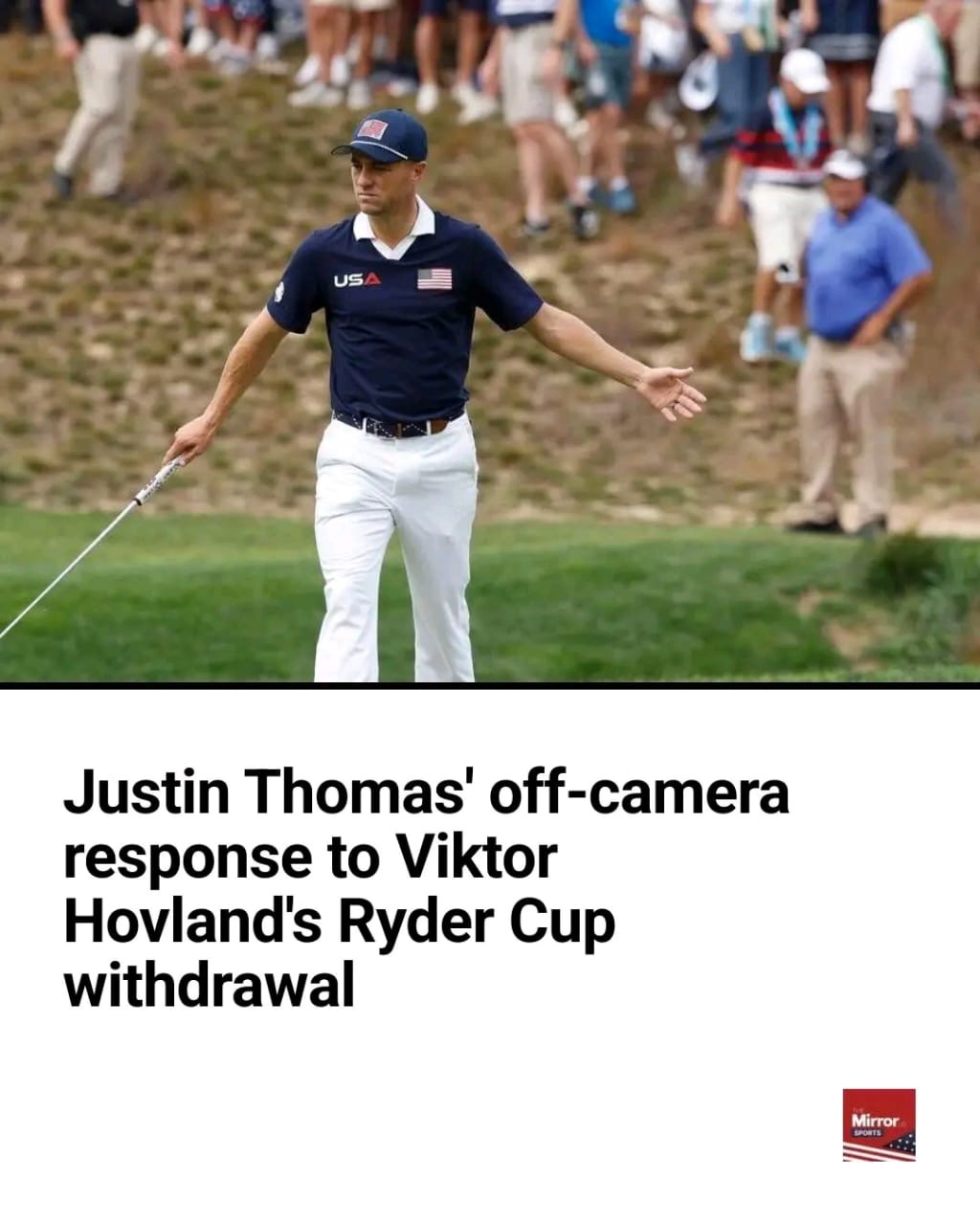The Ryder Cup, one of golf’s most storied and emotionally charged events, has been dealt a heavy blow with the withdrawal of Viktor Hovland. The Norwegian star, known for his consistency and steely nerves under pressure, was set to be one of Team Europe’s most reliable weapons. His sudden absence has not only shaken European preparations but also prompted candid reactions across the golfing world—including from Team USA’s Justin Thomas.
While public statements often remain polished and diplomatic, reports from those close to the U.S. team reveal that Thomas’ off-camera reaction to the news carried an extra edge. Thomas, a fiery competitor with a deep love for the Ryder Cup, did not hold back when he first heard about Hovland’s decision. Sources say his immediate response was a mix of surprise, respect, and a recognition of how dramatically the withdrawal changes the dynamics of this year’s contest.
Respect for Hovland’s Decision
Those who witnessed Thomas’ initial comments off-camera suggest he expressed genuine sympathy for Hovland. The 27-year-old has battled a demanding playing schedule, balancing PGA Tour commitments, major championships, and now the mounting pressure of Ryder Cup expectations. Thomas reportedly acknowledged how taxing the sport can be at the highest level, noting that players often make difficult choices to prioritize their long-term health and careers.
“Viktor’s one of the toughest guys out here,” Thomas was overheard saying privately. “If he’s stepping away from a stage like this, you know it’s serious. He’s doing what’s right for him, and you have to respect that.”
A Strategic Shift in the Rivalry
From a competitive standpoint, Thomas also recognized the enormous implications of Hovland’s absence. As one of Europe’s top-ranked players and a steady points producer, Hovland was expected to anchor key matches in both foursomes and fourballs. His absence leaves Team Europe with a significant hole to fill and forces captain Luke Donald to rethink his pairings and overall strategy.
Thomas reportedly admitted to teammates that while the U.S. cannot afford to underestimate Europe, the news undeniably tips the balance slightly in America’s favor. “It changes things for sure,” Thomas confided. “He’s been their guy, the one they could count on when it mattered most. You take him out, and it’s a different matchup.”
A Reminder of the Human Side of Golf
Despite the fierce competitive spirit that drives Ryder Cup week, Thomas’ private reaction also highlighted the human element often overlooked in sports. Observers noted that his tone carried more concern for Hovland the person than for the competitive advantage his absence might bring.
This is not the first time Thomas has been candid about the pressures elite golfers face. Earlier in the year, he spoke openly about his own struggles with form and confidence, insisting that professional golfers are not immune to fatigue, mental strain, or injury. In this light, his off-camera comments about Hovland underscore a growing awareness among players that even the grandest stages in golf should never come at the expense of personal well-being.
Looking Ahead to the Ryder Cup
For Team USA, Hovland’s withdrawal changes little in terms of preparation. Captain Zach Johnson and his squad remain laser-focused on their mission: to defend the trophy and continue the momentum built from past victories. Yet for Thomas personally, the news is a reminder that while rivalries fuel the drama of the Ryder Cup, respect and empathy for fellow competitors are what give the event its enduring spirit.
As the golfing world braces for a Ryder Cup that will look markedly different without one of Europe’s brightest stars, Thomas’ reaction serves as a window into how players truly process such moments—balancing their own hunger for victory with the recognition that, behind the competition, lies a shared fraternity of athletes.
In the end, Thomas’ off-camera response was more than just a competitor’s take. It was a reflection of maturity, sportsmanship, and an understanding that the game’s greatest battles are fought not only on the course but within the players themselves.









